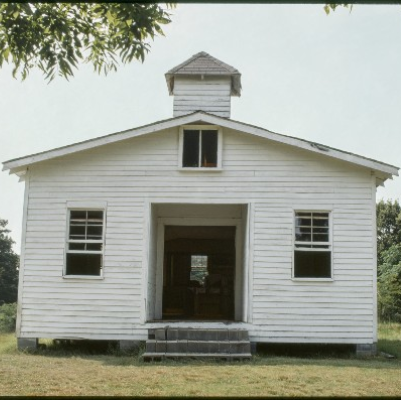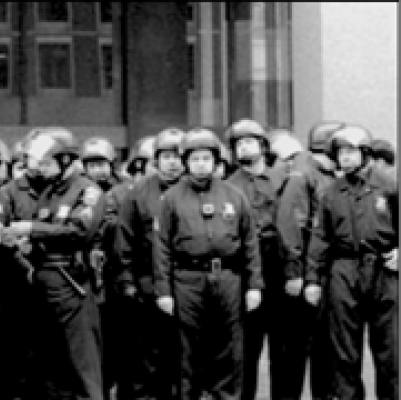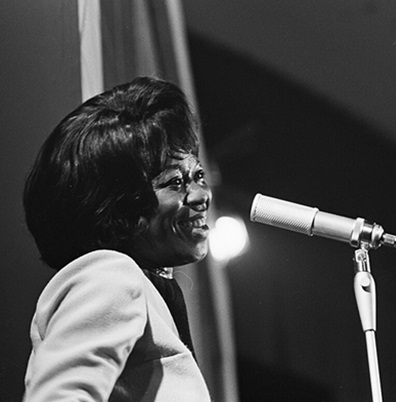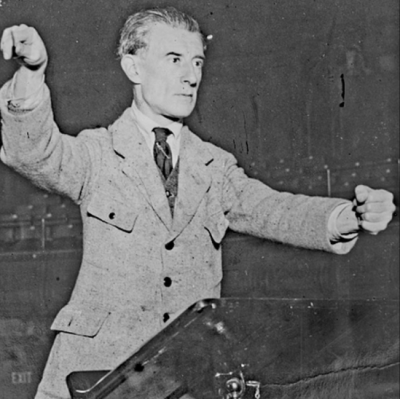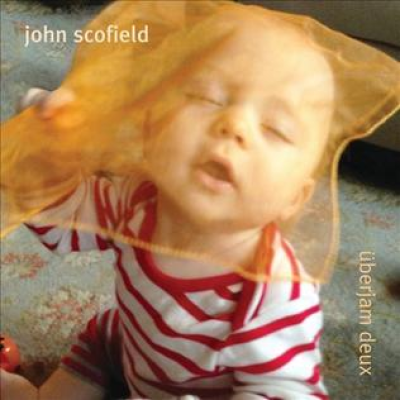.
.
“Unicorn Portrait,” a short story by William Torphy, was a short-listed entry in our recently concluded 61st Short Fiction Contest, and is published with the consent of the author.
.
.
___
.
.
Metropolitan Museum of Art, CC0, via Wikimedia Commons
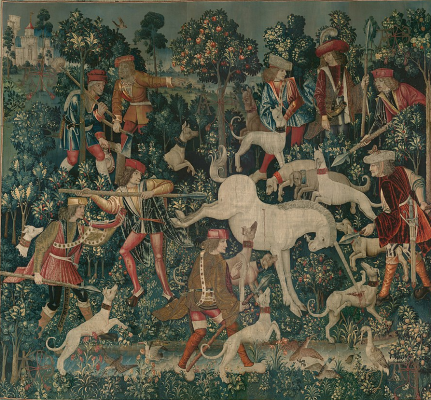
The Unicorn Defends Himself (from the Unicorn Tapestries)
.
___
.
Unicorn Portrait
by William Torphy
.
…..David Wyler slammed the ornate door of the three-story Beaux Arts mansion and dashed down the stairs into the sweltering July heat. The tense meeting with his father and the news of the ruinous article in the Times sent him fleeing from the gallery in frustration and fury. He had told his father that the portrait should be restored to its rightful owner. What other meaning could his chance meeting with her have?
…..He shook his head at his driver waiting in the slate-grey Mercedes. Jimmy looked puzzled and rolled down the front passenger window. “Sir?”
…..“I’ve cancelled my appointments. Take the day off.”
…..He hurried toward Madison Avenue and skirted across to the north side of 71st to avoid running into colleagues at the Markanoff Gallery, competitors David and his father referred to as “The Mark-It-Offs.”
…..Crossing against the light at Madison, he dashed from the path of a speeding taxi, its horn blaring and leaving behind the odor of its combustive farts. He approached Park and glanced south toward the MetLife building. The proprietary feeling that usually filled him when savoring this view, the knowledge that he belonged to the exclusive club of New York’s elite, was absent. This sudden shift of self-perception disoriented him and he steadied himself before striding across the wide boulevard. A massive orange and red abstract sculpture commanded the grass median strip here. “Bathsheba” was one of many artworks donated to the city by Wyler clients, and the first one David had brokered without his father’s intervention. He regarded the steel pylons and crumpled arabesques with distaste now: a million-dollar car wreck.
…..His cell phone chimed, and he switched it off as he passed by doorways with shiny brass plaques that announced Park Avenue pediatricians, surgeons, orthodontists, and therapists whose services his family used. A memory passed through him, seemingly random but somehow linked to his retreat from the gallery: He is nine, in a rush, and trips, tumbling down the stairway of his family’s floor-through co-op. He lands hard on the marble floor. The pain is excruciating and he realizes that he has broken his arm. His parents are away on a ski trip, and a distraught Hilda hustles him to ER at Cedars Sinai. He tromps through a hospital hallway. People lying on gurneys are groaning and screaming, several covered in blood. A woman, grey hair streaming wildly from her head, shouts something in his ear. He is too frightened to care, petrified by all the misery, the masses of walking wounded.
…..The IRT rumbled under his feet, pulling him back to the present. Two Latin youths in dayglo shorts and hairnets wheeled a metal rack of clothing, laughing and joking with one another as they knifed through clusters of shoppers on Lexington. Imprisoned in his Armani suit, he wrestled to take off his jacket, the mix of sweat and cologne a heady musk that nearly masked the street odor of garbage in summer. At 5pm people were rushing toward the subway entrance.
…..He hadn’t taken a subway since he was a teenager. Dressed-down and punked-out, he and his friends were obvious uptown carpetbaggers slumming among the rockers, artists and drug dealers of the East Village. It was his small rebellion, acting tough and cool, knowing that the subway or a taxi always brought him back to his world.
…..He was chauffeured everywhere now, posting two-hour lunches with museum directors and gallery clients. Most collectors were stockbrokers and hedge-fund managers now, the new Morgans and Fricks, interested in diversifying their investment portfolios by speculating in art with Wyler family guidance.
…..How would these white-glove crooks react after the story broke in the Times tomorrow? With these guys, profits were Holy Grail and reputation had nothing to do with profits anymore. So as long as their investments didn’t go south, they would probably shrug and smirk, realizing the Wylers were just like them. Some friends and acquaintances would exact WASP purgatory, the covert glances and pretense of non-recognition that accompanied social exile. Curators and museum directors, intent on saving their thin skins, might not return phone calls for awhile.
…..David thought of the elaborate fictions, all the self-aggrandizing stories repeated by his father and by himself, family mythologies that glossed over the darker episodes. Everyone loved rags to riches tales, especially those already rolling in it.
…..The Wyler dynasty began inconspicuously enough. David’s great, great grandfather Frederich peddled pots and kettles from a cart in Bohemia, making enough money to open a shop in Munich. It was Frederich, Jr. who established the art business at a time when rich Americans were buying up the contents of palaces and churches all over Europe. He changed his name to Fredrick and sent a boatload of art to New York. He and his son, David’s grandfather Benjamin, built the French Beaux-Arts townhouse on 71st to display their treasures, for which a Russian oligarch had recently offered $65 million. David wanted to sell. Fuck legacy. His father would have nothing to do with it.
.
* * *
.
…..The conversation that drove him from the gallery had taken place in the third-floor private office. His father presided behind the Louis Seize desk surrounded by the Modigliani and the Soutine, the early Van Gogh and classic period Picassos. He cleared his throat and informed David that a potentially damaging article would appear in the Times the next day.
…..“It’s the usual hogwash. Some hack writer is claiming that your grandfather purchased artworks from Jews in Nazi Germany and then sold them here for a fortune. It’s an insupportable story to keep that tired issue of stolen Nazi loot alive.”
…..He promptly directed discussion to damage control before David had time to react or reply. “I have our attorneys on this. The paper is on very thin ice. The Jewish press—”
…..“When did you first hear about this?”
…..“Last week. Gardner informed me during Wednesday lunch at The Grill Room.” Mitchell Gardner, an old friend from college days at Princeton, was a VP with CNN.
…..“Why have you waited this long to tell me?”
…..His father sighed with impatience. “I have it all under control, David. I didn’t want to bother you with it.”
…..“Bother? I’m a partner in the gallery, remember?”
…..His father gazed at him silently with a half-smile, unblinking, his hands clasped, the tips of his manicured fingers joined together. David knew that his father was trying to stonewall him once again.
…..“So what inspired this story?”
…..“The Cerny paintings. Someone apparently discovered the existence of that survivor you met.”
…..David went cold. “We should have returned the portrait.”
…..“Doing that would have been disastrous, an admission of guilt.”
…..“Goddammit, Dad. Better that it had come from us than from some muckraker at the Times. Now we’re screwed. What’s the verse: ‘The sins of the fathers shall be visited upon the sons.”
…..His father appeared startled, then vaguely pained, before regaining his usual composure. “I’m sure you’re wrong about that quote.”
…..Leaning back in his gilt Empire chair, he reached for his silver letter opener and tapped it lightly on his desk as he talked.
…..“It was a very complicated time, David. Father knew everyone in German society before the Nazis took power. He was an American with important connections, access to all the collections, artwork that belonged to his friends and business colleagues.
…..“Jewish friends—”
…..“Some were, of course.”
…..“— who were about to be murdered.”
…..“That was not his responsibility! He left in 1937. Benjamin was a businessman, not their executioner. The art would have been destroyed or confiscated otherwise. He offered fair prices.”
…..“He paid pennies on the dollar.”
…..“Father saved great masterpieces and got them safely to America. Look around you.
…..That Soutine would no longer exist if it weren’t for him.”
…..“There were plenty of other vultures who could have done the job.”
…..His father eyed him clinically. “But it’s on our wall, isn’t it?” His voice was flinty. “The bottom line is, we intend to sue the paper.”
…..“I don’t want to contest the article,” declared David. He was tired of the obfuscation, the lies. It was time the truth came out, finally, like lancing a long-festering wound in order for it to heal.
…..His father’s voice was hard and determined. “Listen. We have a business to save here—”
…..The old man still pulled the strings. Years ago, after David broke off his engagement with Evie Chambers, his father thundered for days and practically ordered him to restore the relationship. He capitulated and married Evie, to his unceasing regret.
…..David found it difficult to breath. “I need some air.” He bolted from his chair and hurried from the office, clambering down the curving marble stairway and nearly bumping into an insipid portrait of a milkmaid by Bouguereau, one of one of his father’s favorites, a painting his grandfather had spirited away from Europe.
…..He had left the gallery in a kind of fever and started walking blindly, barely remembering the route he had taken. But he must have known where was heading, as if there was no choice. He turned the corner at 86th Street. David recognized the worn blue awning, the nondescript building where she lived. They had met at the Cloisters months ago, in late winter.
.
* * *
.
…..Jimmy sped north along Hudson River Parkway, exiting at Fort Tryon Park and following the road to the palisades above the Hudson, where he pulled up to The Cloisters. David opened the rear door and stepped out into the cold. The sun shone dimly through low clouds, but the wind was piercing, an Arctic front from Canada. He pulled up the collar of his black cashmere coat and halted briefly to peer at the compound of medieval abbeys and churches. The complex, raked from Europe with Rockefeller money in the 1930s, had been cleverly cobbled together and appeared as though it had always been here. David had known it since childhood.
…..He stepped inside the arched entrance with its fine columns, still stunned by the new electronic security apparatus, an offensive imposition from the contemporary world. You’d think the Metropolitan could have devised a more elegant way of monitoring visitors to its Medieval collection, he brooded.
…..Striding through the grand Main Hall, he veered left into the Cuixa Cloister. The gardens, dormant in March, were filled with medicinal herbs and laid out in ornamental knot gardens in summer. He paced the covered colonnade counter-clockwise, the same route cloistered monks had once taken for their contemplations.
…..His cell phone rang. He winced, reaching inside his coat pocket to silence it, and continued to the southeast corner of the cloister. Except for a half-sleeping guard, the room appeared empty; entering, he noticed an elderly woman sitting on the bench, his bench, and regretted that he wouldn’t have the place to himself.
…..He brushed annoyance aside and turned his attention to the object of his visit. Seven glorious panels hung on the walls, each progressively pictured the hunting of a magical beast, the white unicorn. The Unicorn Tapestries, woven in Flanders during the fifteenth century, had survived wars, fires, looting and mistreatment of every kind until cloistered under The Met’s protection. His father first brought him here when David was five and made the tapestries come alive, embellishing the story and pointing out all the details: the hunters dressed in their finery and carrying their spears, gathering under the banner of the king to relentlessly pursue the unicorn until it was captured. The last panel pictured the creature kneeling on the ground encircled by a golden fence, an exotic tree growing magically from its neck.
…..“Are there such things— unicorns?” he had asked.
…..His father smiled. “No, not really. Unicorns are symbols for something rare and precious. The king wants to capture the unicorn because he values it above all things.” His father went on to explain how the rare masterpieces of art he searched the world for were precious and desirable like the unicorn. He compared the Wyler men to the aristocratic hunters portrayed in the tapestries. It was one of David’s most-treasured memories, from a time when he worshipped his father.
…..He took a seat next to the woman. A faint odor of fragrance. She was well into her eighties: small, bird-like, hunched as she peered intently at the tapestries. Her hair shone silver even in the room’s dimmed lighting.
…..“It’s brutal, isn’t it?” Her voice quavered, but was almost husky, a surprising contrast to her fragile frame. A smoker’s voice. “Those courtiers and their armed servants chasing down a single creature.” An obscure European accent, the inflected consonants. “All that organization and energy dedicated to imprisoning a defenseless being.”
…..Her comment perplexed him, so different from all the usual historical interpretations, of pagan myths referring to a being that could only be tamed by a virgin, a narrative Christianity later de-eroticized by claiming the legend for Christ’s pure relationship with his Virgin mother.
…..“It’s actually a pretty complex story—”
…..“Oh, I know about the iconography,” she declared, cutting him off. “What all the experts tell us to think. The story is symbolic, but the reality of the actual event pictured for us to see is pretty awful.”
…..“What do you mean?”
…..She studied him with alert, dark eyes. “Just look at that last panel. Imagine how frightened the unicorn must have been surrounded by the king’s armed henchmen, the growling dogs nipping at its hoofs.”
…..“But at the end, it’s only captured, not killed. We see it will be well-treated.”
…..“So the story goes. But if you forgo the myth and look at the situation directly, you understand that the hunters’ need to dominate is” —she stressed the last words—“terrible and terrifying. They yearn to destroy its freedom, because that’s what men do!”
…..David hesitated to reply, befuddled by her adamancy.
…..“Life for most of us is like the unicorn’s,” she continued, “subject to the whims of egomaniacal kings and the brute power of armies. Hunters and the hunted.”
…..“That’s a pretty strong perspective to obtain from a few five-hundred-year-old tapestries.” He couldn’t hide the sarcasm. His father would scoff.
…..“I suppose it is, young man, but don’t you think any artwork’s meaning is purely subjective, prone to different interpretations. Art’s meaning, like our own, emerges from hardship and struggle.”
…..“Are you an art historian then?”
…..“No, I’m just an overly talkative, opinionated elderly person who enjoys bothering strangers.”
…..He chuckled. Touche’.
…..“It’s a special day, actually” she confessed, “and I wanted to spend it here. But— if I don’t stand up and move around soon, I’ll never be able to leave this bench.”
…..He should return to work and the gallery, but asked if she would join him for coffee. She nodded and took his arm. There were no elevators in the Middle Ages, so they descended a narrow stairway to the café. They settled at a small table, eying the posters and sipping.
…..He broke the silence. “I’m forgetting my manners. I didn’t ask your name.”
…..“Sharon. Sharon Ryan.”
…..He must have looked dubious.
…..“I know, it doesn’t make any sense, does it—me an Irish colleen?”
…..“Forgive me. It’s unusual, that’s all.”
…..“My maiden name is entirely unpronounceable. I married an Irishman, a Jewish Irishman, like Leopold Bloom. So what’s your name, young man?” A coquettish tone in her voice.
…..“I’m David Wyler.”
…..“Not the Wylers who have the gallery on 71st?”
…..“That’s right.”
…..“I don’t get out that much anymore, but I saw an exhibition at your gallery a few years ago. It featured many of the old Czech artists, painters from before the war. What was that show called?”
…..“Modernist Masters.”
…..“I enjoyed it very much, especially the paintings by Karel Cerny. Those dull pastel colors, as if he knew that the world he painted was fading away.”
…..At least someone liked the show, thought David. It had been one of the gallery’s few failures. His father had gambled taking those paintings out of deep storage. His own father had consigned them there decades ago. But the work didn’t sell. The art press had raised issues about the collection’s provenance, questions about its possible Nazi-era acquisition. His father blithely brushed them aside, but the controversy simmered after the show closed, the collection tainted and put back into storage. David was still at Princeton at the time, and what he discovered from research did not vindicate.
…..Sharon Ryan warmed her hands on her coffee cup. “My family owned a few of Cerny’s paintings before the war. All lost now, of course.” She shot him a look.
…..He stared at his own cup, unable to meet her eyes directly.
…..“My father commissioned portrait of me when I six years old. He claimed it was his favorite.”
…..David had seen the painting— a young girl with the lively dark, eyes full of mischief, the unruly red hair barely restrained by emerald green barrettes. It had never been exhibited.
…..Covering his unease, he adopted the persona of practiced salesman. “We still have a couple of Cerny’s at the gallery. If you should ever want to visit, call ahead and I’ll have an assistant bring them out to show you.”
…..“I’m not a collector. I’m a retired schoolteacher. The High School of Art & Design. I taught mechanical drawing. I discovered that I had a knack for it.”
…..David felt a slight tick of sorrow. He had wanted to go to Art & Design, but his parents objected and sent him to prep in Vermont.
…..“Did your children go there?” he asked, imagining them as classmates.
…..“Warren and I didn’t have children. I couldn’t have them. Damaged in the camps.”
…..That direct manner, her startling frankness took him aback.
…..“My husband died two years ago.”
…..“I’m sorry.”
…..“Warren helped liberate the camps after the war. That’s how we met. The experience damaged him in some ways more than it did me. I lost everything in this world—my home and my family, all of it—but Warren lost his faith in humanity.”
…..David shifted in his chair. “And you didn’t— lose faith—after everything?”
…..“No, never entirely. Goodness lives even in the most horrifying circumstances. Warren found me in hell, after all. He gave me a reason to live and then I served a purpose, urging him to live every day.”
…..He had never faced any real physical discomfort, much less horror and deep loss.
…..“I did what I had to do to survive. I wasn’t exactly a saint,” she confessed. “Warren came as a savior, my messiah. We were both soul sick, staring down death, but I was a lot tougher.”
…..His entitlement had its price, he thought, exacted its own demands.
…..“I always wondered what happened to that painting,” she mused. “It must certainly have been destroyed. It’s rare for a person to outlive her own portrait, isn’t it.”
…..Unsettled, he didn’t know how to answer. He pulled out his cell phone to turn it on.
…..Café workers busied themselves with cleaning up. A guard appeared at the stairs and announced that the museum would be closing in fifteen minutes.
…..“I need to get going,” she declared. “I don’t want to miss my bus.”
…..“I have a car. Let me take you home. The bus goes through some pretty rough neighborhoods.”
…..“I’ve taken worse rides in my life.” She gave him a pointed look. “I live way over on 86th and Second Avenue.”
…..“You’re practically on the way.”
…..“Well, if it’s truly no problem—” While she went to the ladies’ room, he checked his messages: Evie curtly reminding him about dinner with the Lewis’ that evening, his father asking why he wasn’t at the gallery.
…..Sharon Ryan reappeared, walking stiffly, and took his arm once again. The guard nodded and held the door open for them. The wind blowing up from the Hudson was even fiercer now. He imagined Sharon Ryan waiting in the cold for a bus that would certainly be late.
…..The Mercedes pulled up and Jimmy jumped out. David waved him back inside and helped her into the car, securing her seatbelt. “We’ll be dropping Mrs. Ryan off at East 86th.”
…..“I certainly didn’t expect this!” she declared, settling into the butter-soft leather seat. “You promised me that you would drive me home.”
…..Jimmy turned and smiled at their guest, handing David the Times. Front-page headlines blared: “Mayor Supports Stop & Frisk.”
…..She snorted. “Our rulers live in a world very different from our own. The rich and powerful enjoy frisking people everyday. Oh, I didn’t mean you—”
…..He considered her comment. “You should talk to my wife about that. Evie has her own ideas about who rules our world.”
…..She laughed and then leaned her head back against the headrest, her eyes closing, lids fluttering. They were nearly transparent. David thought of the willful-appearing six-year old with the red hair and lively dark eyes.
The car merged onto Hudson River Parkway. After perusing the front page, David called the gallery. Rachel at the front desk informed him that his father had already left for the day. The assistants were beginning to close up.
…..They exited the Parkway onto 110th. Up ahead the gothic tower of The Cathedral of St. John The Divine commanded the northwest corner of Central Park. His grandfather Benjamin had collaborated with the Rockefellers to build it.
…..Sharon Ryan opened her eyes. “This park and the pile. I wonder how Cerny would have pictured it?”
…..There was an unidentifiable edge to her voice. He nodded thoughtfully.
…..“Excuse me for being so rude. I would never dare fall asleep on the bus. Warren and I occasionally went to the opera and symphony. He always insisted on taking a cab, which he referred to as ‘the carriage,’ though it was faster to walk to Carnegie.”
…..“You must have had a good life together.”
…..“It’s Warren’s birthday today. That’s why I came to The Cloisters. It was one of his favorite places.”
…..“I wondered why you said it was a special day.” He hadn’t really.
…..“My husband was a fine man,” she whispered hoarsely. “But he was weak, haunted by what he’d seen after the war.”
…..He and Evie seemed to have no strong feelings of any kind about one another. They were like show birds sharing a golden cage together.
…..Jimmy sliced expertly through the rush hour traffic, turning onto Second Avenue and continuing south. Snow flurries skittered between the buildings onto the street below like confetti, creating a monochrome composition of grey and white.
…..“We’re here,” she announced, pointing out her building to Jimmy: post-war white brick construction, a weather-beaten blue awning over the front entrance.
…..She extended her hand. “I enjoyed meeting you, David Wyler. I hope I didn’t monopolize your valuable time.”
…..“I’ll never be able to look at those tapestries in quite the same way again.”
…..“I haven’t spoiled things for you?”
…..“The truth never spoils.” Oh, but he knew it could. “Perhaps we’ll meet again.”
…..“I highly doubt it. I believe we run in different circles. Actually, I mostly limp in circles these days. You must have a busy evening. Off with you now!”
…..Jimmy helped her out of the car and accompanied her to the entrance. Sharon Ryan turned and gave a little wave as the doorman appeared and greeted her familiarly.
…..The Mercedes pulled out and joined the traffic waiting for the light.
…..“Take me to the storage space on Houston,” David ordered. “I need to check on something.”
.
* * *
.
…..He stood in front of the building and gestured at the doorman. The doors swept open, sending out a phalanx of air-conditioned air.
…..“I’m David Wyler, here to see Sharon Ryan.”
…..“Mrs. Ryan? The doorman looked pensive. “She passed away— three months ago.”
…..“That couldn’t be. She seemed perfectly fine when I saw her.”
…..“Were you a friend?”
…..He shook his head.
…..“Her old apartment’s been leased out. Sorry to be the one to let you know. She was a really nice lady.”
…..David felt light-headed, dizzy. The heat, the doorman’s news.
…..“Are you okay, sir?”
…..“Maybe some water—”
…..The man disappeared behind a door and David slipped away to the mailboxes, scanning the nameplates. No Sharon Ryan.
…..“What are you doing, sir?” The doorman stood behind him, holding a glass of water.
…..“I was just checking.”
…..“I told you she died. I think maybe you better leave, sir.”
…..The glass doors closed behind him with a whoosh. He stared up at the brick façade and then began to walk aimlessly down Second Avenue.
…..He had wanted to do the right thing. But something more compelling had restrained him from returning the portrait these past months. It was fear, of facing her directly.
…..He imagined sitting in her apartment, glancing at photographs of her lost family framed on the wall. He would tell her that the hounds and hunters were now closing in on his family. She would listen politely, her reply direct and honest, damning or understanding,
…..“Take all the Cernys!” he shouted. A man passing by on the street shot him an alarmed glance.
…..“What do you mean—take them?”
…..“They belong to you. Your family—”
…..“That was a lifetime ago. I’ve tried to bury the past. I’ve buried my husband. That’s what I told the reporters. It’s your inheritance now, David Wyler. It’s yours to carry from now on.”
.
.
___
.
.
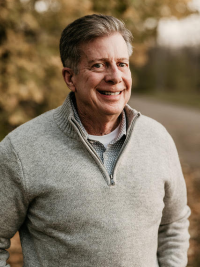
William Torphy’s fiction has appeared in numerous magazines and journals, including Bryant Literary Review, The Fictional Café, Sun Star Quarterly and Chelsea Station. His cultural commentary has been featured in Solstice Literary, OpEdge and Vox Populi. Ithuriel’s Spear Press has published “Love Never Always” (poetry collection), “Snakebite” (young adult fiction) and “A Brush With History” (biography). His short story collection, “Motel Stories,” is to be published by Unsolicited Press. He has recently moved from the San Francisco Bay Area, where he served as an exhibition curator, to Wisconsin, where he was weaned in a jazz-loving household.
.
.
___
.
.
Click here to read “Equal,” Chris Simpson’s winning story in the 61st Jerry Jazz Musician Short Fiction Contest
Click here for details about the upcoming 62nd Jerry Jazz Musician Short Fiction Contest
Click here to subscribe to the Jerry Jazz Musician quarterly newsletter
Click here to help support the continuing publication of Jerry Jazz Musician (thank you!)
.
.
.





